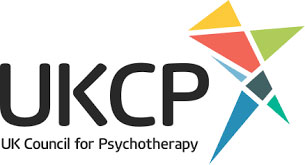ADDICTION AFTERCARE
Residential treatment centers commonly offer an aftercare programme as part of the treatment package. This usually takes the form of a weekly group process with other recovering people who have also completed a treatment programme. Other aftercare options would involve seeing an addictions counsellor or psychotherapist to continue the important process of exploration and self-reflection.
Addiction Aftercare Support Groups
It is evident that those with strong support networks and access to ongoing treatment are more likely to remain clean and sober. Peer support is essential in sustaining ongoing recovery. Great sources of peer support are self-help groups like Alcoholics Anonymous and Narcotics Anonymous.
Successful Recovery
Addiction aftercare groups, regular one to one therapy sessions and a strong support network of pro abstinent recovering individuals are the best ways to ensure sustained recovery. Additionally, other interests and activities can provide a sense of purpose and satisfaction.
A common theme of addiction is that drugs and alcohol are used to soothe overwhelming emotional states. Learning healthy strategies to regulate difficult feelings is essential if recovery from addiction is to be maintained. Accessing ongoing support for addictions treatment is understood to produce better outcomes. Aftercare is an important part of the addictions treatment process as it provides the opportunity for continued growth and self reflection. Aftercare activities offer structure, containment and the opportunity to develop more fulfilling and healthy relationships.
RELAPSE PREVENTION
A cognitive-behavioural approach commonly used in addictions treatment with the goal of identifying and preventing high-risk situations.
Relapse prevention is a crucial component of addictions treatment. Coping with urges and cravings is a challenge in early recovery. Relapse is commonly understood to be a behavioural process that starts long before the use of a substance. Common signs of relapse include denial, isolation, complacency, arrogance, suppressing feelings, and non-engagement in aftercare activities.
Addictions counselling enables the individual to identify potential triggers for relapse and to cope effectively with high-risk situations such as negative emotional states, interpersonal conflict and social pressure. New coping skills are explored to help regulate and manage the uncomfortable feelings that may drive the relapse process.
Asking for help is the first step
Email me now to discuss addictions treatment options
Addictions Counselling
Identifies the important psychological functions that addiction provides. Uncovers personal experiences that contribute towards the development of addiction. Therapy must be an attuned, relationally warm and reparative encounter for an individual seeking treatment.
Treatment Planning
A collaborative, motivational and dynamic process that identifies individual needs and goals in order to plan a range of interventions. It is currently understood that an individualised person centred treatment improves outcomes.
Rehab & Detox
One of the more effective addictions treatment options. Choosing the appropriate rehab to match individual needs is essential. A medical detox can be anxiety provoking, therefore it should be well planned and made as comfortable as possible.
Aftercare
Includes support groups and ongoing addictions counselling to continue the important process of exploration and self reflection. Evidence suggests that those with strong support networks and access to ongoing treatment are more likely to remain clean or sober.

